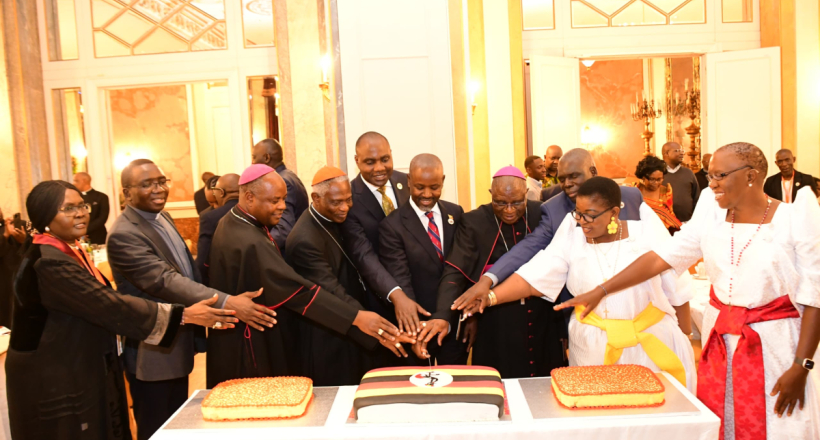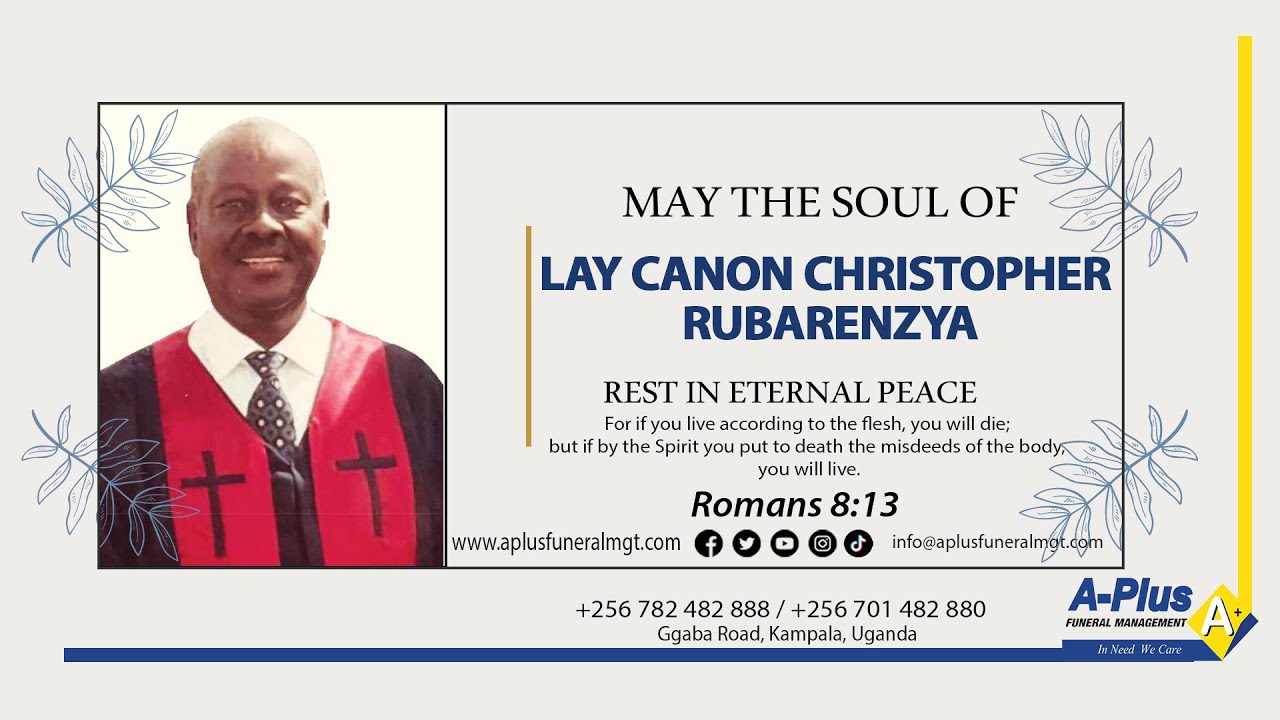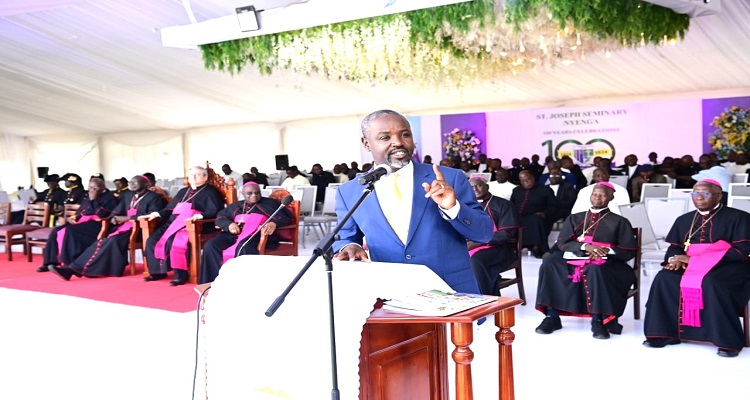(Kampala) – President Yoweri Museveni has praised the positive influence Christianity has had on Uganda, recognizing its contributions to the country’s development. In a speech delivered by the Deputy Speaker of Parliament, Thomas Tayebwa, Museveni emphasized how Christianity introduced scientific knowledge, education, and social values that have helped shape the nation.
The remarks were made on October 19, 2024, during a special ceremony held at St. Peter’s Basilica in the Vatican, marking the 60th anniversary of the canonization of the Uganda Martyrs. The event was led by His Eminence Cardinal Peter K. A. Turkson, the Chancellor of the Pontifical Academy for Sciences and Pope Francis’ Special Envoy.
In his speech, President Museveni explained how Christianity brought “value addition” to Uganda, building on the indigenous belief in one God, referred to as Ruhanga Nyamuhanga by various Ugandan ethnic groups. Museveni noted that missionaries introduced scientific knowledge, such as boiling milk to prevent diseases, which helped improve public health in Uganda.
The President also praised the social values promoted by Christianity, such as the resurrection, love for one’s neighbor, and hard work. He stated that these principles had played a significant role during Uganda’s struggle for independence and periods of armed conflict, blending with Uganda’s cultural practices to create a stronger foundation for the nation.
Cardinal Peter Turkson, who led the celebrations, called on Africans to be inspired by the example set by the Uganda Martyrs. The Martyrs, canonized 60 years ago, were described by the Cardinal as “true Africans transformed by the Gospel.” He highlighted their importance in shaping Africa’s Christian identity and emphasized the need for faith, integrity, and good governance across the continent.
Cardinal Turkson also urged young Africans to follow the example of Charles Lwanga and his companions, many of whom were young adults when they were martyred. He pointed out the relevance of their youthfulness, saying it was a challenge for today’s young people to re-engage with their faith.
In addition, Cardinal Turkson stressed the importance of fighting corruption in Africa, citing the martyrs as an example of individuals who upheld strong moral values. He called on Africans to “become artisans of hope” by embracing the values of the Gospel and working towards a corruption-free society.
Apostolic Nuncio to Uganda, Archbishop Luigi Bianco, also spoke during the event, describing the Uganda Martyrs as exceptional examples of faith, hope, and commitment to God. He called on all Christians to follow their example and become “beacons of hope and instruments of peace.”
The Archbishop Emeritus of Kampala, Emmanuel Cardinal Wamala, echoed these sentiments, describing the Uganda Martyrs as “Uganda’s luminous heroes and mentors of the Catholic faith.” He expressed deep gratitude to those who contributed to their canonization and emphasized their ongoing significance for Uganda and the global Christian community.
Bishop Joseph Antony Zziwa, Chairman of the Uganda Episcopal Conference and Bishop of Kiyinda-Mityana Diocese, delivered a message through Archbishop Lambert Bainomugisha of Mbarara Archdiocese. Bishop Zziwa underscored the lasting impact of the Uganda Martyrs on the growth of the Christian faith in Uganda and around the world, describing their contribution as Uganda’s unique gift to Christianity.
Uganda’s Ambassador to the Holy See, Stephen Mubiru, highlighted the increasing relevance of the Uganda Martyrs to the African Church, particularly in light of Africa’s growing Christian population. He noted that the theme of the anniversary, “The Blood of the Martyrs: Seeds of Hope for an Integral Ecology,” reflected the martyrs’ continued significance for faith and ecology in modern Africa.
Among those attending the ceremony were top Ugandan officials, including Deputy Speaker Thomas Tayebwa, Minister Justine Kasule Lumumba, State Minister of Finance Henry Musasizi, and Members of Parliament Sarah Opendi, Joseph Ssewungu, and Herbert Ariko. Former opposition leaders Salam Musumba and Mathias Mpuuga were also present.
The Uganda Martyrs were canonized by Pope Paul VI on June 18, 1964, in a historic moment for the Catholic Church in Africa. The 22 martyrs, including 20 Catholics and two Anglicans, were executed between 1885 and 1887 by King Mwanga II of Buganda for refusing to renounce their Christian faith. Their journey to sainthood began in 1915 when they were declared Blessed by the Catholic Church, and they were formally recognized as saints nearly 50 years later.
The Uganda Martyrs continue to inspire Christians worldwide, and their legacy is celebrated annually, especially at the Uganda Martyrs’ Shrine in Namugongo, Uganda, which attracts millions of pilgrims each year. Their courage, faith, and conviction remain a symbol of hope and resilience for persecuted Christians across the globe.




















